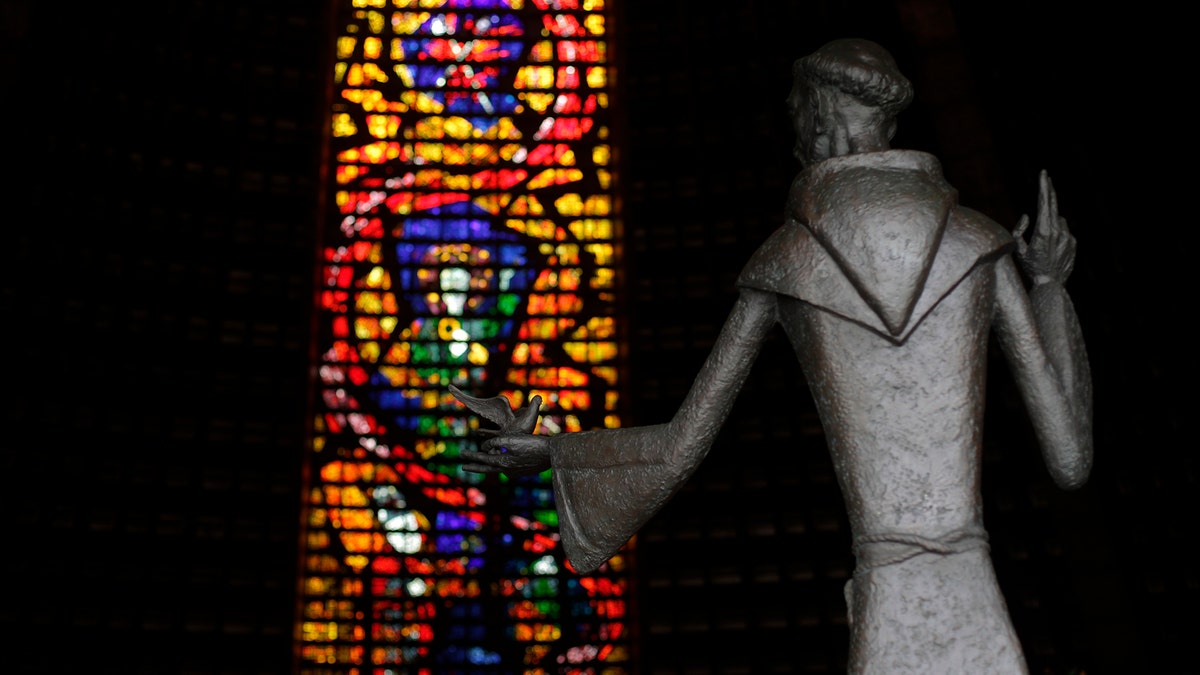
File photo - A statue of St Francis of Assisi is pictured during a Catholic Palm Sunday mass at Rio de Janeiro's Cathedral March 24, 2013. (REUTERS/Ricardo Moraes)
Catholic lore has it that in the depths of the winter of 1224, things looked grim for a group of monks who, trapped by snow, were starving inside a friary in southern Italy.
Then a knock at the door alerted the monks to a life-saving delivery: a sack of bread, emblazoned with a fleur-de-lis, symbol of the French court.
The story has it that angels ferried the sack to the Friary of Folloni near Montella, and that the sender was St. Francis of Assisi, the future patron saint of animals, who was living in France.
Now, researchers in Denmark say they may have proved the Catholic legend to be true, IBT reports. Or at least the bread part. Analysis of fragments of fabric from the sack, preserved over the centuries as a relic, reveal the fibers date to 1220 to 1295, and that they likely came in contact with bread.
The friary has kept the textile for more than 700 years, using it as altar cloth before encasing the few remaining fragments in a shrine in 1732.
Writing in the journal Radiocarbon, the scientists say the bread likely came in contact with the fibers before they were preserved as a relic. Using carbon analysis, the team found traces of ergosterol, a steroid found in mold that could be a biomarker for baking, Southern Denmark University says in a news release.
Lead researcher Kaare Lund Rasmussen says "it is possible" the bread could have dated back to that "cold winter's night in 1224." As to how the sack got there, he adds, "This is maybe more a question of belief than science." (A Hawaiian curse prompts tourists to return lava rocks.)
This article originally appeared on Newser: Scientists Think One Catholic Legend Is Really True




















